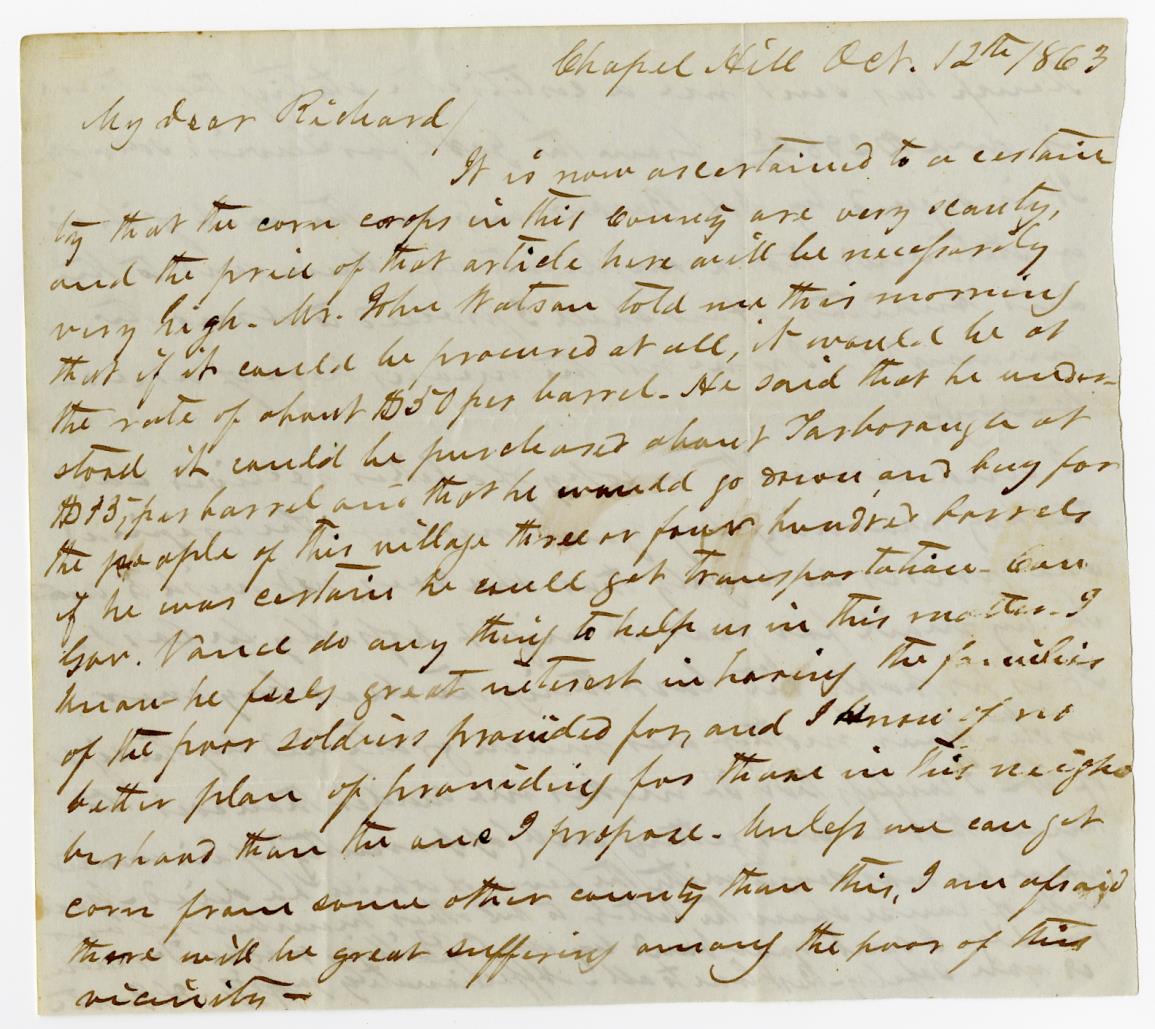Caption by Zac Spainhour
Primary Source: Letter, 12 October 1863, from Judge William H. Battle to his son, Richard Battle. From folder 49 in the Battle Family Papers #3223, Southern Historical Collection, The Wilson Library, University of North Carolina at Chapel Hill.
This is a letter from Judge William Horn Battle to his son, Richard Battle, dated October 12, 1863. Within the letter, Judge Battle expressed his concerns about commodity shortages in face of the forthcoming winter, with his chief concern being crop shortages in the county. Judge Battle worried that the impoverished residents of Orange County will suffer from “very high” corn crop prices. He noted that these high prices were a local issue, as he is told by an associate that the price of a barrel of corn will be $30, which was significantly higher in comparison to prices in the neighboring city of Tarboro, where barrels of corn sold for $13 per barrel. Given that Richard Battle served as the private secretary of North Carolina Governor Zebulon Vance, Judge Battle pleaded his son to appeal to the governor for assistance in face of this crop shortage. This request indicates that Judge Battle felt compassion for the wellbeing of his community.
Judge William Horn Battle was a respected lawyer and legislator of North Carolina, with deep ties to our university. A University of North Carolina alumnus, he graduated second in his class in 1820, and was admitted to the bar in 1824. From there, Judge Battle went on to practice law in various roles, and from 1852 until the Reconstruction Act of 1867 forced his removal, he served as a justice of the North Carolina Supreme Court. After the judge’s wife’s death in 1874, he returned to Chapel Hill with his son Kemp, who was elected president of the recently-reopened University of North Carolina.1
Although these corn crop shortages may have especially affected Orange County, they were a symptom of a broader issue that the civilian population of the Confederacy faced throughout the Civil War. As the war progressed, food shortages in the South became more and more prevalent, stemming from a host of factors such as a dwindling amount of manpower, the disruption of transportation facilities, and the Confederacy’s lack of a self-sufficient economy.2
Sources Cited
- Gass, W. Connard. “Battle, William Horn.” Dictionary of North Carolina Biography, 6 Volumes. University of North Carolina Press, 1979.
- Massey, Mary Elizabeth. “The Food and Drink Shortage on the American Homefront.” The North Carolina Historical Review. Vol. XC. Raleigh, NC: North Carolina Office of Archives and History, 2013. 306-07.

